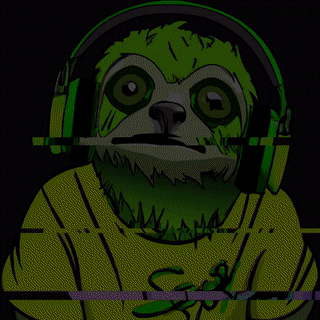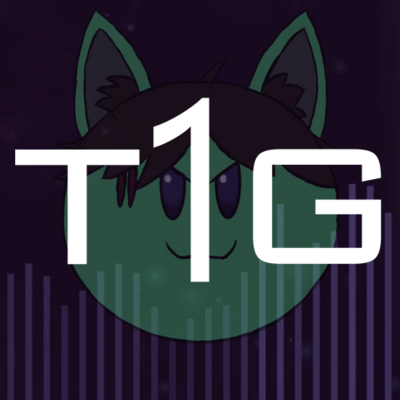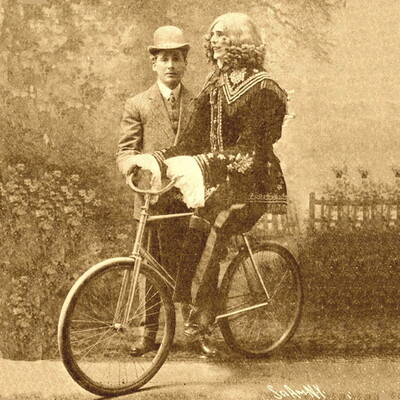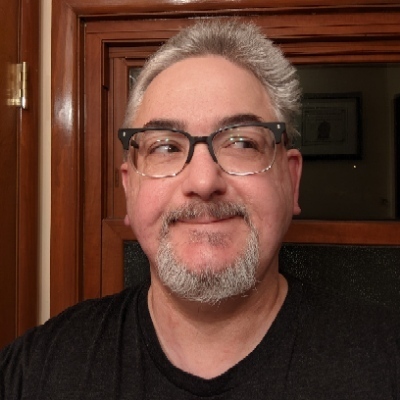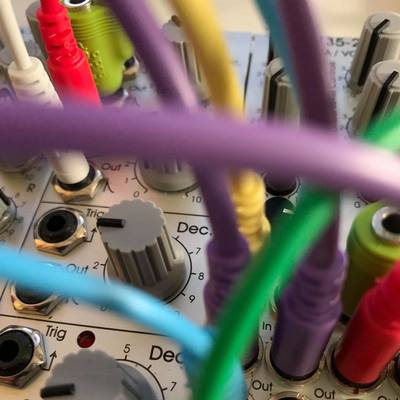@musicproduction How did you learn music production, primarily?
Interested in how people came to it: self taught, took classes, grew up in a musical family and was immersed, etc? And what strengths or weaknesses do you feel it brought you?
I grew up in a musical family and church environment where I had access to instruments and audio consoles and such.
Later, I was in a shitty high school rock and roll band, and did a little bit of guerilla home recording. I also organized some live events that were basically house shows.
In college (for an unrelated field), I worked the console for an easy, weekly show for a semester or two. After graduate school (in the same, unrelated field), I had some time to kill while figuring out my next move. My old neighbor was the audio engineer at a local venue, and after some work convincing that person, I was taken on as the intern. A short time later, I started working gigs around town and moving up the chain at the venue where I started.
So, I learned production the old-school way, like an apprentice. I had the benefit of picking up a weekly, low-stakes gig early on where I gained a lot of experience and got to make mistakes. I also had the benefit of a formal education that really helped out with the communication and organizational aspects.
Basically, through several twists of fate, I’m now a full-time, professional audio engineer/production manager. I’m now dipping my toes into the studio side, and doing some post-production work at home using the knowledge I’ve gained in the live sound world and, critically, with the help of friends and colleagues I’ve had the good fortune of meeting along the way.
TLDR: Sheer, dumb luck. Study hard and be kind to people. Don’t be afraid to make mistakes and DIY.
I started self teaching in my bedroom and later when to a school for 3 years.
@limebar @musicproduction I’m self taught using Logic Express and then Logic Pro. I found it easy to learn but didn’t understand the electronic instruments until I bought some tutorials. I still don’t really know how to mix and master properly.
Brother was a piano player, started studying classical/jazz/experimental music in my teens, learned electronic music in my 20s.
More recently, took some audio production classes around 10 years ago because I wasn’t finding what I needed online, self-taught from there.
I started out self-taught, using software like Sony ACID and Mixcraft. Then I went and studied a music degree, where they had us using Logic. I discovered REAPER in that time, and have stuck with it since.
@musicproduction
I was self taught in days when midi first made things cheap enough for home recording, yes old. Then years later I took a single electronic music elective in school. Took a long break from music to have a career in software. Came back to it in depths of the pandemic, found everything and nothing had changed. Tools are still great, still daunting how to make it all bend to your will. So I resolved to make it fun, only. Worry less about perfection. Mastering tho, is black magic…@musicproduction
Myself, I was involved with piano lessons a long time ago, so most of the knowledge was lost, but I could read sheet music as a result of it.At some point I learned of MIDI and how it can allow you to turn patterns on a piano roll into music, and was hooked. The problem was, I had no money to pay for the program, but I eventually heard of Soundtrap (freemium online DAW) and eventually Cakewalk by Bandlab, before I threw money at Image Line for FL Studio.
@limebar @musicproduction Age 0-10: Peeping through keyhole to dad’s band room, learning English obsessing over LPs (but no turntable!), banging half-skinned snare drum - finally a wonky piano.
Age 10-20: Tubaist w/ professional ambitions, piano terrorist
Age 20-30: Bands, musicals as pianist
Age 22-52: From Cakewalk 3.0, ever more possessed by production, mixing, arranging, synth progr.
Biggest pro: Music theory
Biggest con: Never properly investing, realising too late it’s my life passion!@terjefjelde @musicproduction oh wow thanks for the great response! This tells a story.
I am also Cakewalker since DOS days. Rediscovered it when bandlab made it free. Will you stick to it when it goes paid? I’m considering a switch.
@limebar @terjefjelde @musicproduction I was a Cakewalk user from Sonar Producer 2.0 through whenever they sold to Gibson (who sold to bandlab, right?). I switched to Reaper which after a steep learning curve I’ve managed to configure in a way. I still open Sonar from time to time to get an old project to convert. I still miss some things about it.
@limebar @terjefjelde @musicproduction I first started learning to use a DAW using ACID. 😆
@puffer @limebar @musicproduction I used that for a while, too! I used it for audio because my version of Cakewalk at that time only did MIDI – if I remember correctly, that is… so many years ago!
@puffer @limebar @musicproduction Same when Gibson happened. It was a tough decision to make at the time, but I went to Studio One and I haven’t really looked back after that.
@terjefjelde @limebar @musicproduction Like you it was hard to leave because I knew it so well, but now I’m glad I did because like you it changed my process for the better
@limebar @musicproduction Happy to share! And I enjoyed reading your story, and all the other ones as well, great idea!
I stopped using Cakewalk when Gibson messed up everything, and went over to Studio One.
After 25 years, I knew Cakewalk inside out, it felt like my DAW “home” and “identity” – and it was a big leap for sure. But honestly (and, at the time, begrudgingly!) Studio One was a revelation, and my productivity went through the roof. And so, I’m still with Presonus 😁
@limebar @musicproduction @elsemusic I was in a few bands in the 80s, most importantly for me a two-person band for a couple of years.
You have to learn how to do lots of stuff in that situation, from playing & programming your synth, composing, playing with others, sound production, recording, sequencing, etc. I think that acclimated me to teaching myself, which became my norm. Self-reliance is good, but can come at a cost.
I did take a couple audio production classes later.
I’d say the drawback to learning on your own is that you miss some things. You don’t always know what you don’t know. You can also establish bad habits w/o realizing it. I released lots of music for years before learning that mixing on small speakers was key and then that mastering was important. If I’d taken more classes or worked in the industry, I’d have learned it long ago.
I agree with what’s been said about mastering. I have Ozone but no mastering experience or equipment. I have little to no confidence that I’m doing it right.
@limebar @musicproduction Took a few bass lessons as a kid, otherwise mostly self-taught through lots of reading, though I did make an online friend early on who helped me pick up some basics. I’ve had some other musician friends that I learned a few things from as far as playing instruments, but most of them haven’t been that into the recording/production stuff.
As @stevenray said, I think I’ve had some blind spots, but I also think I’ve avoided some BS that passes as conventional wisdom.
Played in bands, briefly interned at a small studio (which I forgot all about) got tired of trying to make the band thing happen, remembered I liked being in the studio.
Went to a practical recording school and got a job as a runner in a studio.
Was super lucky to work with some great people.
@limebar @musicproduction most of my friends were musicians and recording gear was just starting to become affordable. we learned from each other and trial and error.
@limebar
Books and Youtube tutorials, plus a lot of poking around.Also that time a friend and I presented at LinuxConf about music production on Linux, only to find out one of the Ardour developers was in the audience.
That was educational :)
@musicproduction@limebar @musicproduction completely self taught, originally back in 2007 using a dodgy copy of Pro Tools 7 and now legally using Reaper after a 12 year gap of not doing anything music related.
@limebar @musicproduction I’m self-taught, as with most things. I’m taking some online classes about more technical aspects, like mixing and mastering. Not really from a musical family, but my dad did give me my first guitar (his old one).
